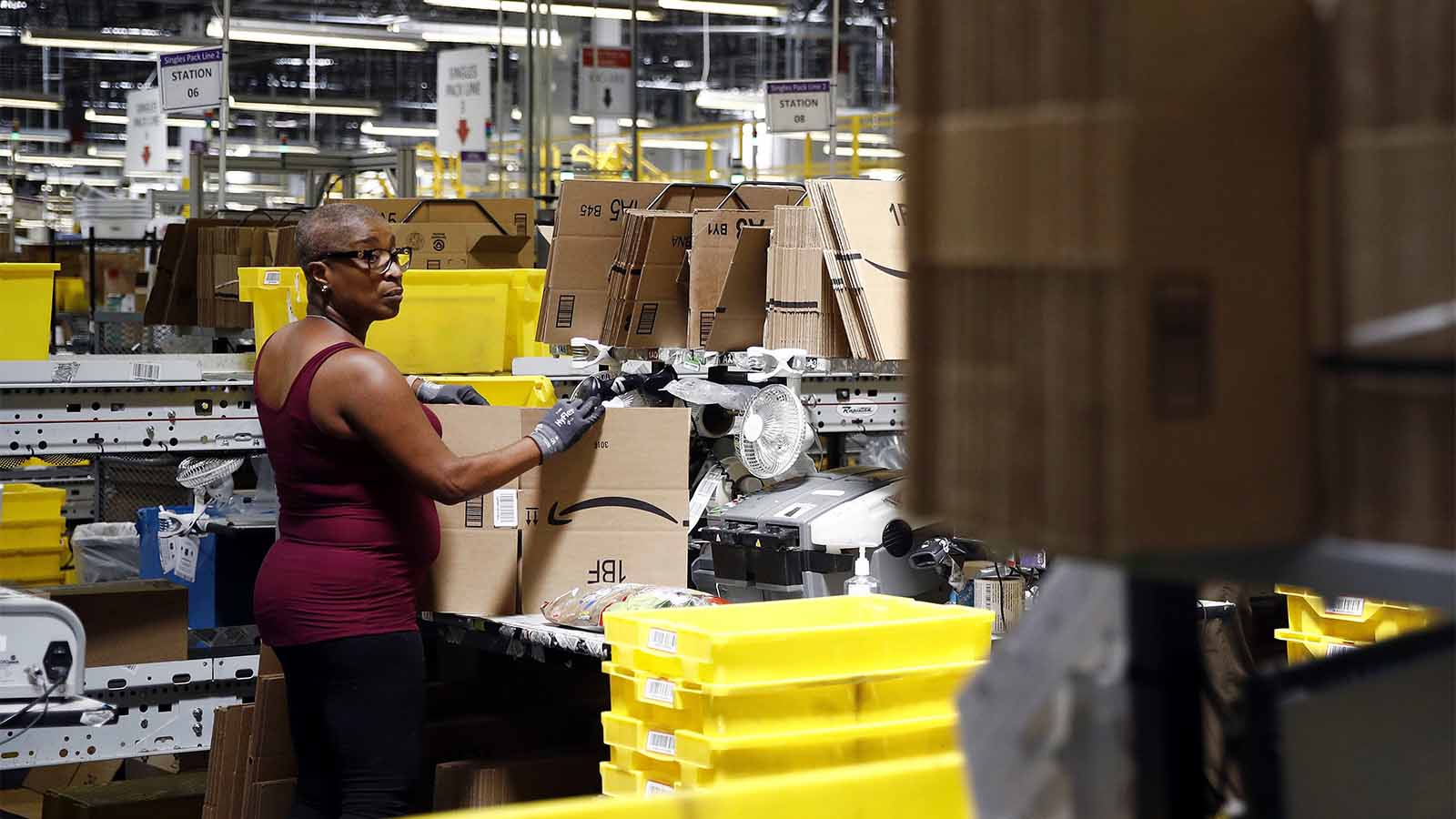A quick survey of Israelis, especially young adults, would show that in the last few years, almost everyone has made use of the services offered by one of the international retail giants, like Amazon, Ali Baba or Next. But we usually don't bother ourselves much with the faces and names of the people who make these purchases possible. Are they paid well? What are their working conditions? Are their rights being respected?

Over the last two years, Amazon has been grappling with this very issue. By now, most people are aware of the fact that Amazon has, to put it nicely, a problematic relationship with its workers. Not, heaven forbid, its white-collar workers—developers, programmers, engineers—but rather those on the bottom rungs of the ladder, the workers that do the hard work of operating the distribution centers, the ones responsible for sorting, packaging, and distribution.

Repeatedly, complaints have been raised by workers against the notoriously difficult working environment, abusive conditions, impossible demands and insulting wages. The struggle reached a peak this July when, in the midst of the huge retail holiday, "Prime Day," protests and strikes were staged by Amazon's international union. Citing "unsafe and appalling" working conditions, Amazon workers throughout Europe and the U.S went on strike on one of the busiest days of the year, demanding better wages and working conditions.
Amazon has recently announced its official launch in Israel, set for this October. The question that faces us, as Israeli workers is this: as organized workers, how should we regard the arrival of Amazon to our country?
It's tempting, of course, to be excited by the possibilities offered by Amazon. As consumers, Amazon might make our shopping easier and more affordable. But as workers, and especially as workers who recently had to fight for the right to unionize, can we accept the terrible treatment of workers by Amazon? Can we sit by and support Amazon while their workers in Israel and around the world are denied the right to organize and demand decent wages and working environment? I would argue that we can't, and we shouldn't.
Amazon's imminent arrival in Israel should give us cause to pay attention to working conditions of exploited workers, even if we don't know them and even if we don't speak the same language as they do.
I believe that as organized workers, we have the power to help fight unfair employment practices. This month marks the eight-year anniversary of the 2011 nationwide protests in Israel. You can say what you want about those protests, but one thing is certain: since 2011, workers' rights and organized labor are back on the agenda in Israel. The massive wave of unionization that followed the protests in traditionally non unionized sectors like cell phone service, credit, insurance, and finance industries among others, is a decisive example of that trend. Organized labor in Israel is, stronger today than it has been for years- and must keep growing and growing.

The only way to do this is by showing support for other groups of workers in their effort to organize and demand better conditions. As workers, solidarity is the strongest tool we have, and we must show other workers that we are willing to support them.
Naturally, the more new unions start sprouting up, especially in international companies like Amazon, the more we suddenly start hearing concepts like "management flexibility" and "economic efficiency" being tossed around. The heads of management that have adopted these terms, have yet to accept the fact that when flexibility and efficiency meet, they simply cannot treat their workers as just another line in a spreadsheet.

When Karl Marx wrote, "Workers of the world, unite!" over 150 years ago, he probably never imagined the possibility of giant multinational corporations that employ hundreds of thousands of workers around the world. Nevertheless, and even more so today, this simple message is still relevant.
__________________________________________________________
The writer is the chair of the "Partner Communications Company" Workers' Committee.







